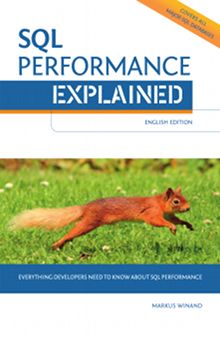The index on LAST_NAME has improved the performance considerably, but it requires you to search using the same case (upper/lower) as is stored in the database. This section explains how to lift this restriction without a decrease in performance.
Functions
Contents
Case-Insensitive Search —
UPPERandLOWERUser-Defined Functions — Limitations of function-based indexes
Over-Indexing — Avoid redundancy
You can’t learn everything in one day. Subscribe the newsletter via E-Mail, Bluesky or RSS to gradually catch up. Have a look at modern-sql.com as well.
About the Author
Buy the Book

The essence of SQL tuning in 200 pages
Buy now!
(paperback and/or PDF)
Paperback also available at Amazon.com.
Hire Markus
Markus offers SQL training and consulting for developers working at companies of all sizes.
Learn more »
